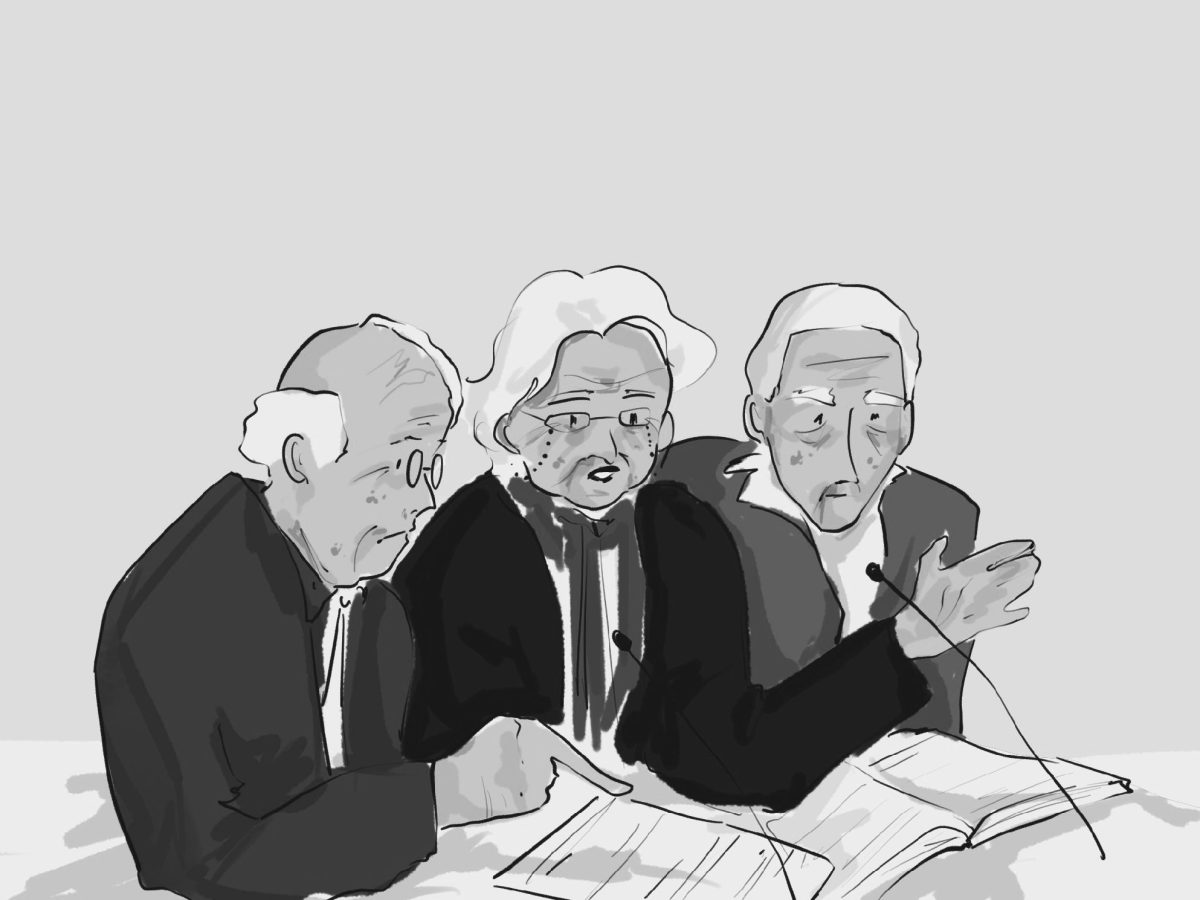“Diane Feinstein, 90, Dies; Oldest Sitting Senator and Fixture of California Politics.” I was taken aback when I saw this notification pop up from the New York Times on Sept. 29. Senator Feinstein, San Francisco’s first female mayor and the first woman elected to the Senate in California, was the oldest politician serving in the U.S. Senate. Feinstein had previously taken two months off and returned to the Senate in May during which she was being treated for shingles. After her return, Feinstein appeared frail and used a wheelchair. On the day of her death, she voted in Congress regarding the Federal Aviation Administration (FAA).
There is no doubt that Feinstein made incredible strides in politics. However, her lengthy career and old age touch on a much larger issue in American politics — leaders in Congress are typically much older than the population they represent.The median age for a U.S. Senator is 65.3 years and has been rising for the past three elections, according to the Pew Research Center. This is significantly higher than the average age of American citizens which stands at 38.1 years, according to the United States Census.
The older a person is, the more at risk they are for conditions such as dementia, hearing loss and diabetes, according to the World Health Organization (WHO). Politicians who are barely able to acknowledge their own health struggles should not be the people we trust to take care of our country. Mitch McConnell had two health-related episodes in the past six months. Speaking before Congress, he froze mid-sentence and had to be ushered away, according to NBC. Older generations of legislators should not be entrusted with so much power if they are unable to fulfill their duties because of health concerns.
President Joe Biden is 80 years old, and Senate Majority Leader Chuck Schumer is 72 years old. Though these politicians tend to be more experienced given their long tenures in office, their age prevents them from properly representing the younger constituents that make up our nation.
America’s demographics are changing, and younger generations are starting to advocate for more progressive political change. Of course, experience and acquired knowledge are valuable, and older politicians, such as Feinstein , possess both. Despite this, older generations often neglect to make room for younger voices and are not able to understand and represent the evolving concerns of young Americans. Young politicians can introduce new ideas that resonate with underrepresented demographics to the political landscape —New York Representative Alexandria Ocasio-Cortez is a large advocate for student loan forgiveness, an issue that resonates with many young voters. Older generations can help facilitate the change to introduce more young leaders into politics. Student loans are by far not the only issue that is disproportionately relevant to young people. Younger generations are more active to deal with issues like climate change and mental health, according to Voices of Youth.
Older politicians in office can also make room and advocate for young leaders in Congress. This ensures that politicians who will be leading our nation in the future are better equipped for their positions by making it easier for younger generations to gain experience and exposure, ensuring long-term success. Weeks before Feinstein’s death, Senator Mitt Romney announced that he would not be running for re-election in the Senate and called for a “new generation of leaders,” according to CNN. Older politicians can be following suit, and giving more equitable opportunities to younger politicians. Obviously, not all politicians need to step down, but change will not come if it is not facilitated by those already in power.
If young people have more representation in their government, it will lead to better civic engagement and political participation among the young people of America. In the 2022 midterm elections, only 27% of people aged 18-24 cast a ballot in the election, according to NPR. Young people are the future of this country, meaning it is important that we are engaged in politics, and all of our voices are heard. Furthermore, there are political and economic issues that affect large young populations, such as housing accessibility and student loans. Student loan debt in the U.S. has increased by 66% over the past 10 years, with the student loan debt balance being 1.77 trillion dollars, according to the Federal Reserve . If younger representatives are in power to advocate for these issues in congress, more young people will be interested in voting and participating in civic duties. This is necessary for the U.S. to progress and maintain stability.
Setting reasonable age limits on how old politicians can be is a possible solution and would lead to significant change in who represents the people. Age restrictions already exist in the congressional system — one must be 25 to serve in the House of Representatives and 30 to serve in the Senate. There is obvious hypocrisy in requiring age minimums but not limits; these restrictions should apply to both ends of the spectrum. However, setting age limits isn’t the only solution. Older politicians can make the decision to step away, or at least lessen their roles in politics like Senator Romney did back in September. They can be the ones facilitating change and empowering young aspiring politicians to eventually take over. However, it is also up to us, as young people, to push for ourselves to be seen and heard in our government given that we will be the ones to live with their policies.



























